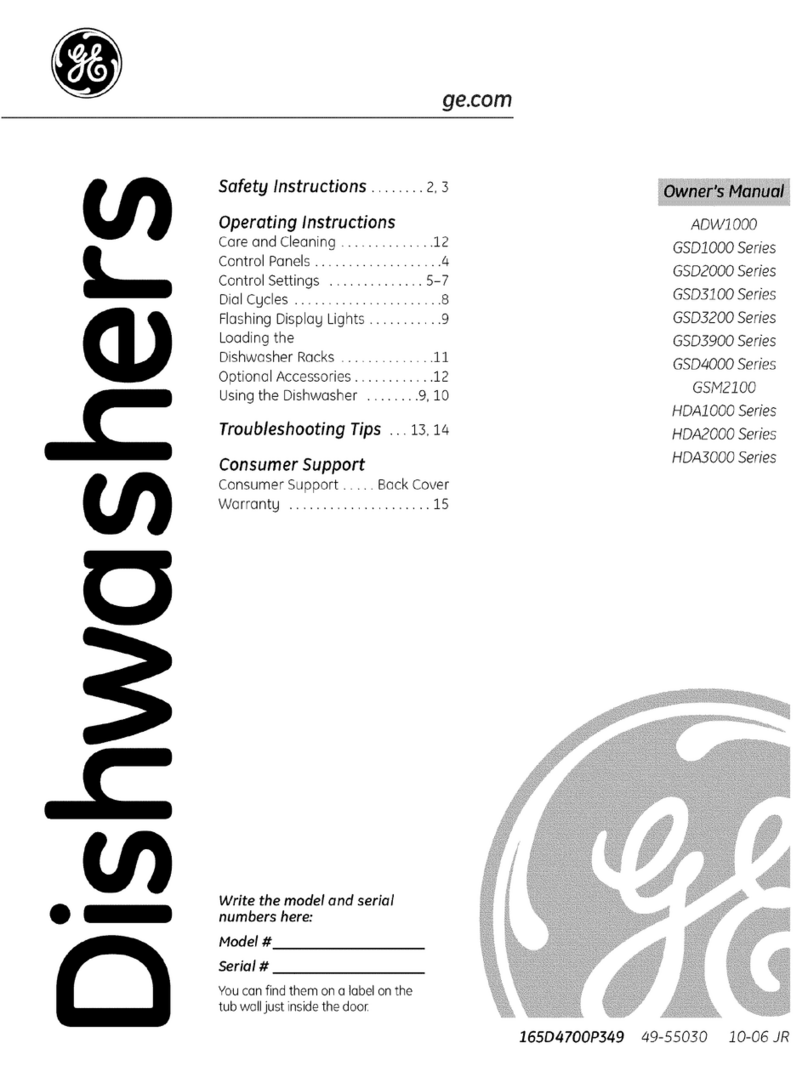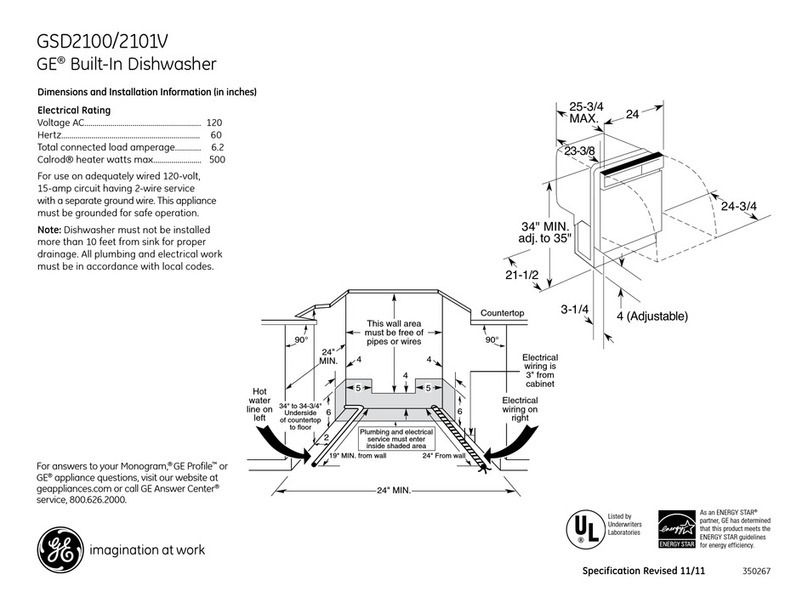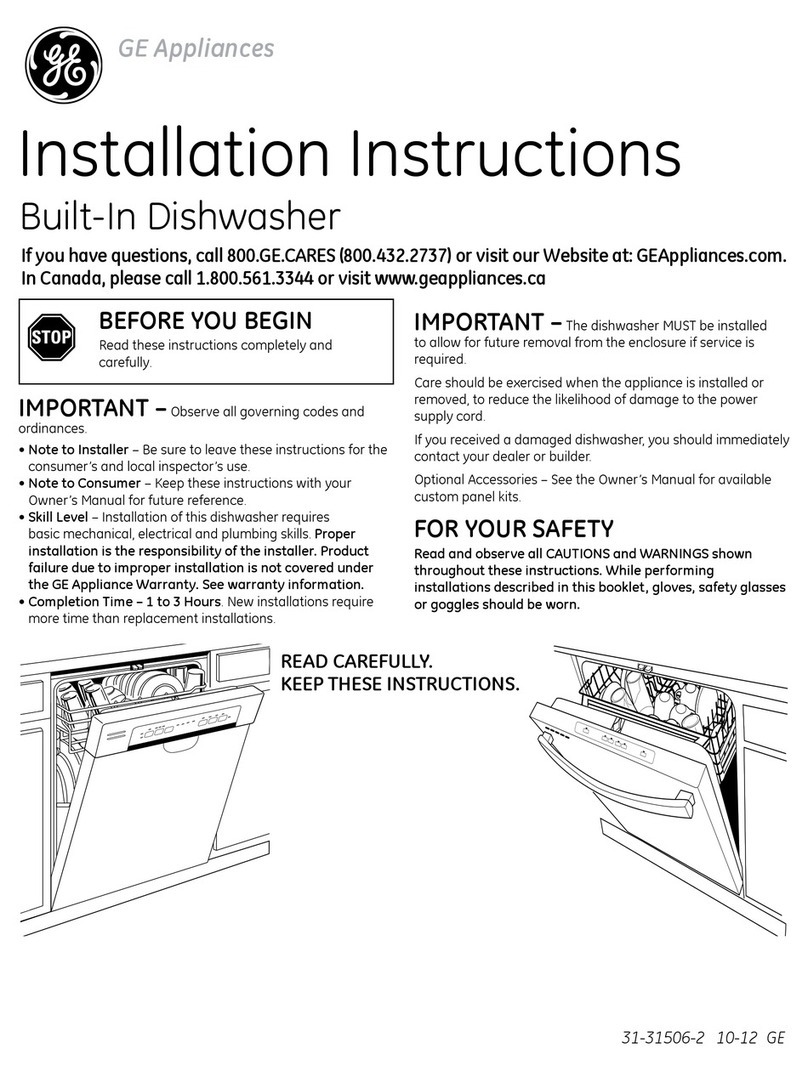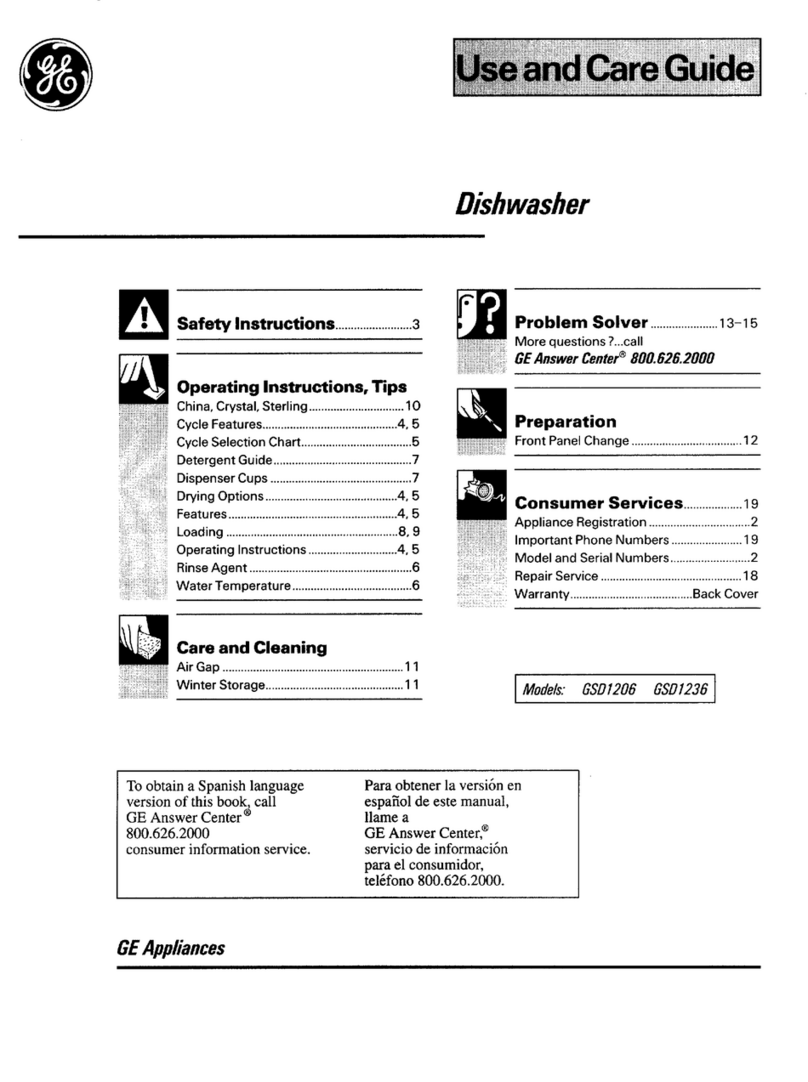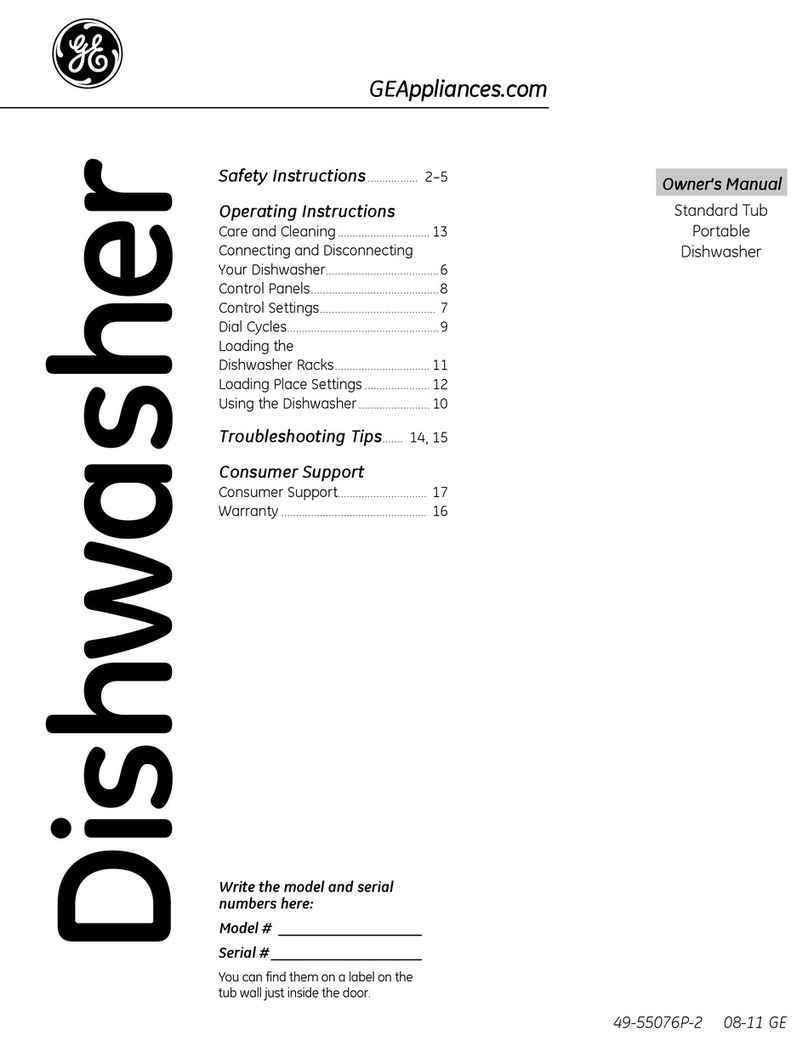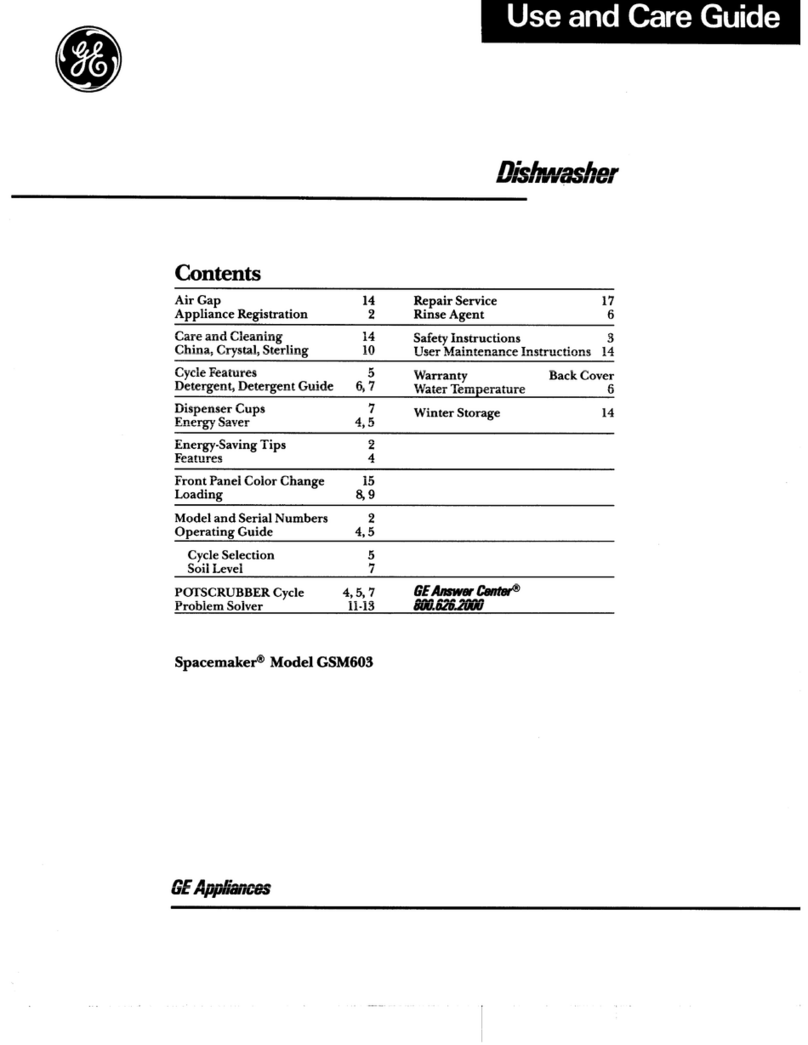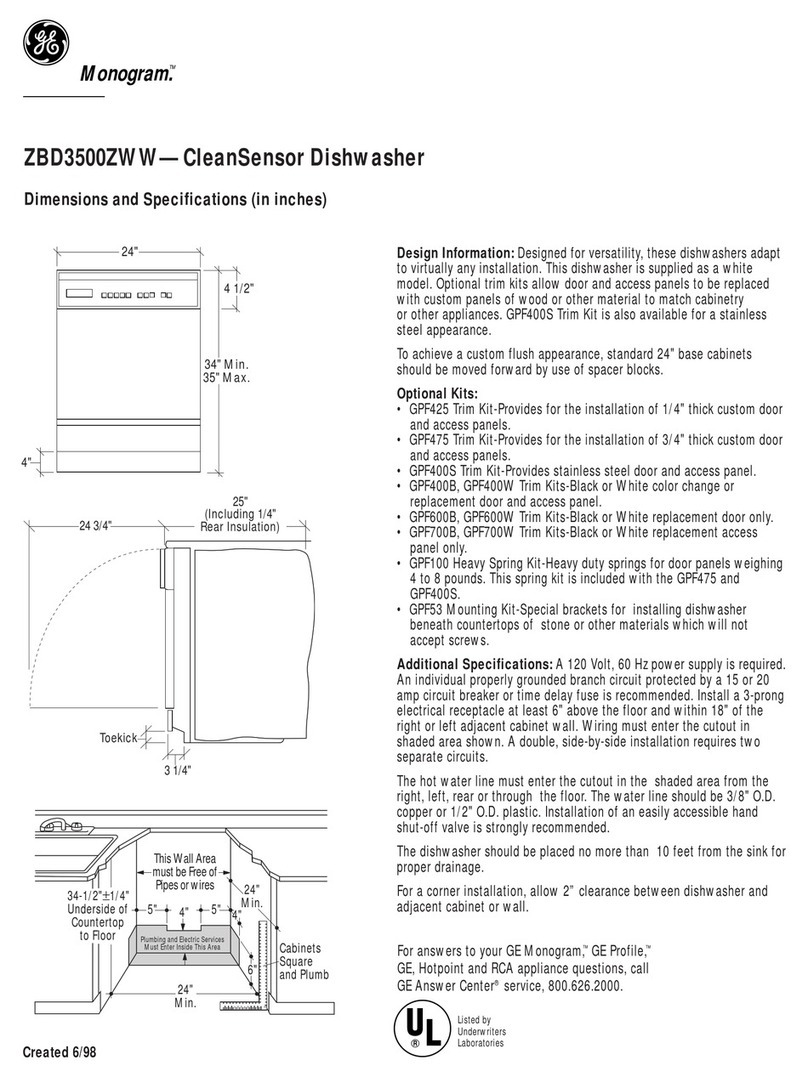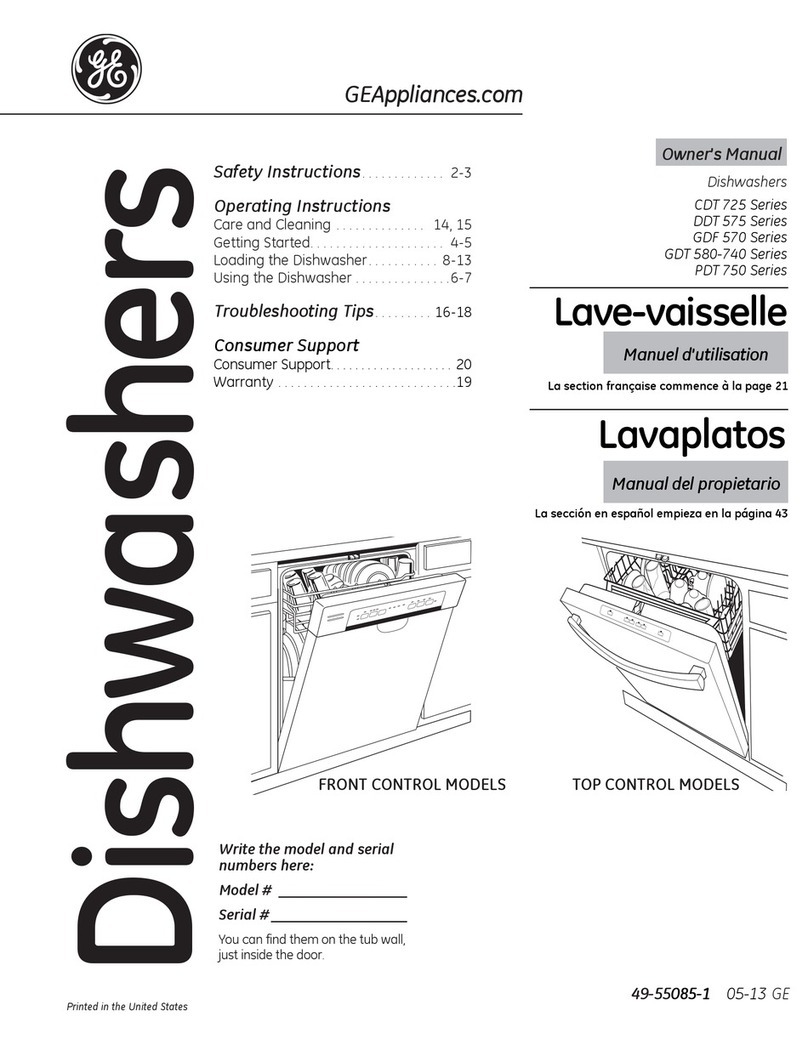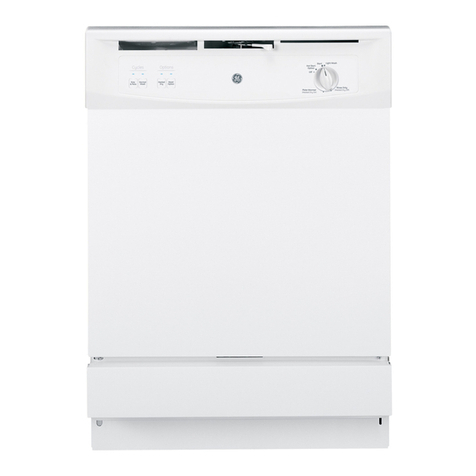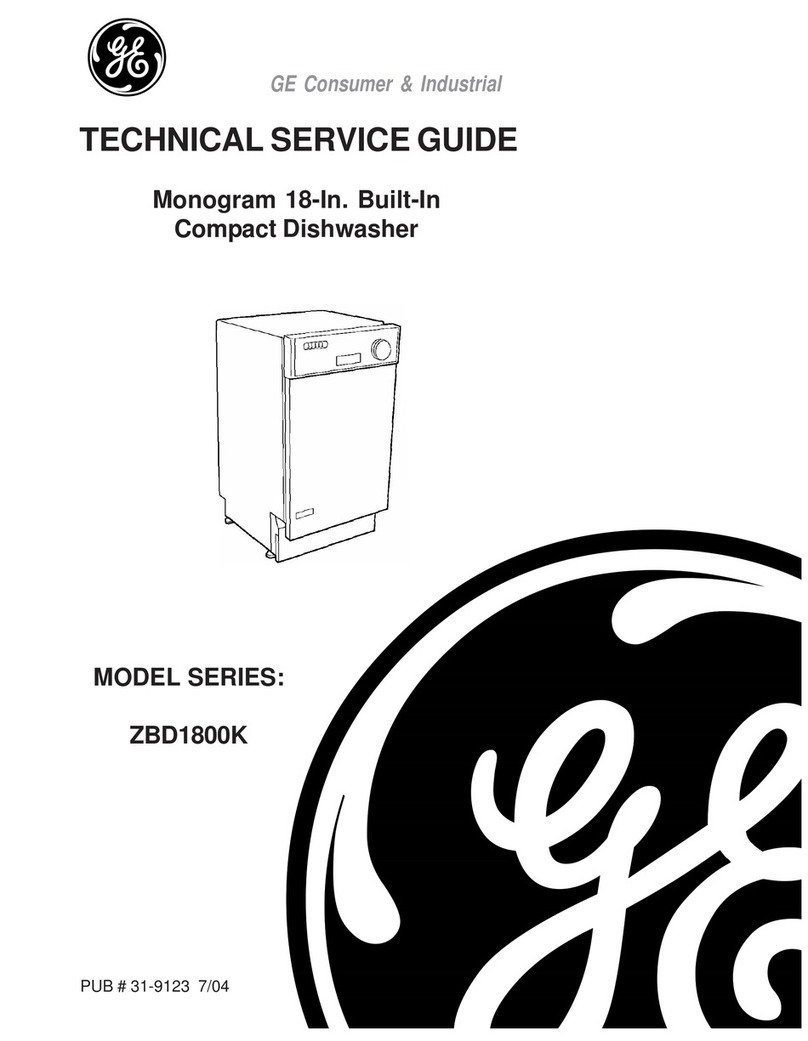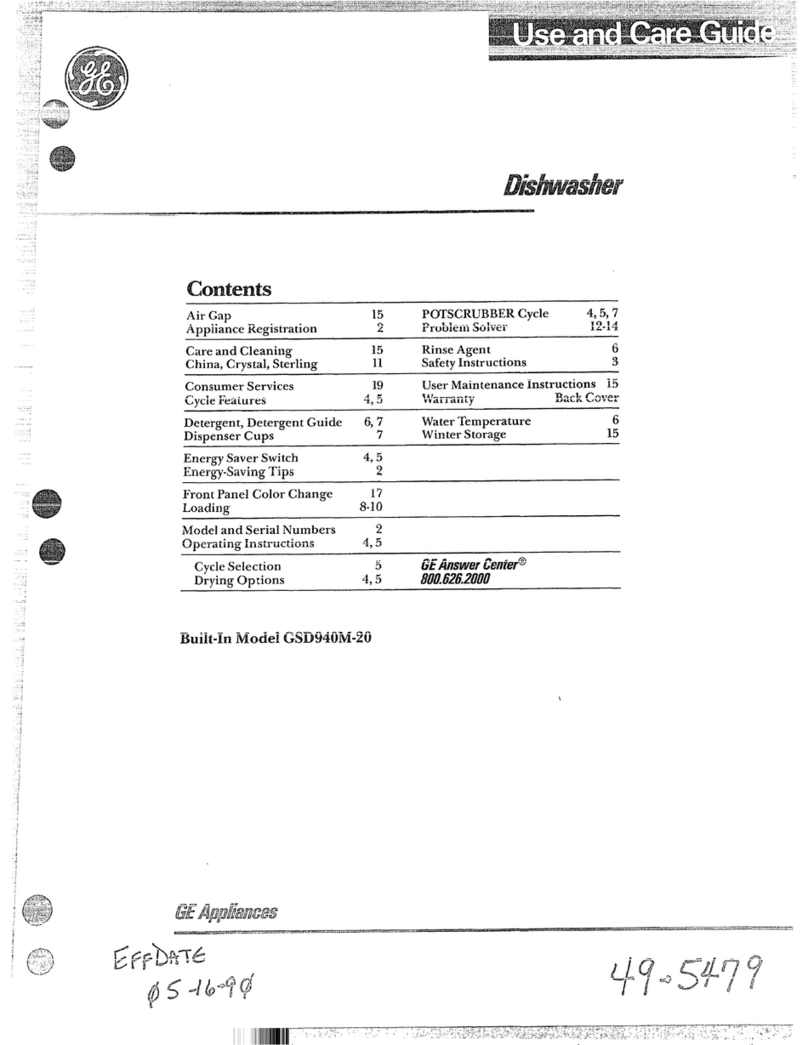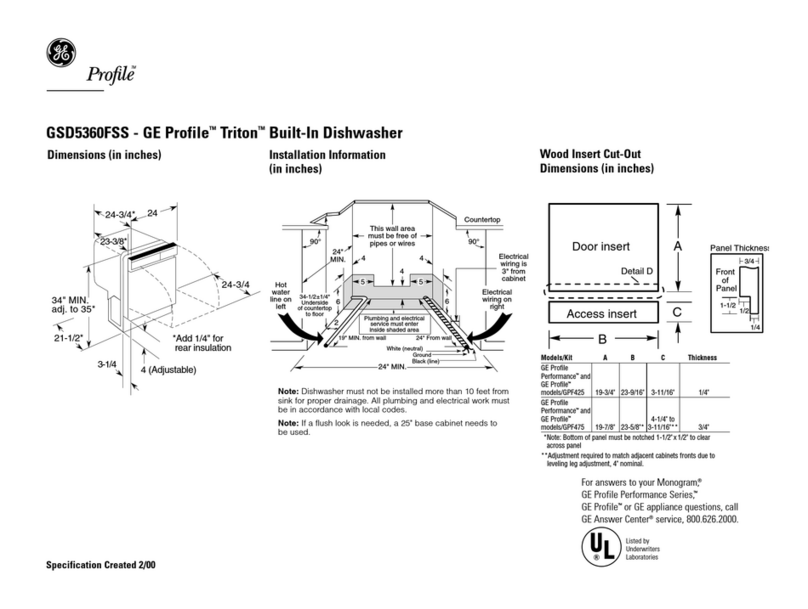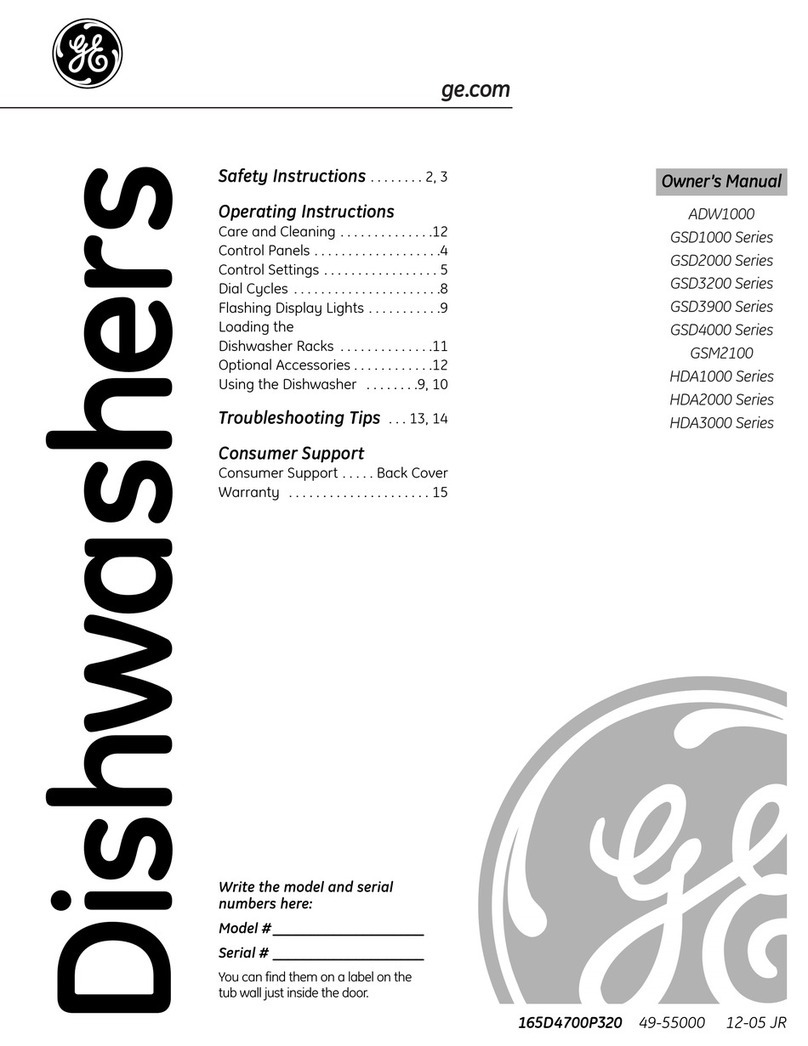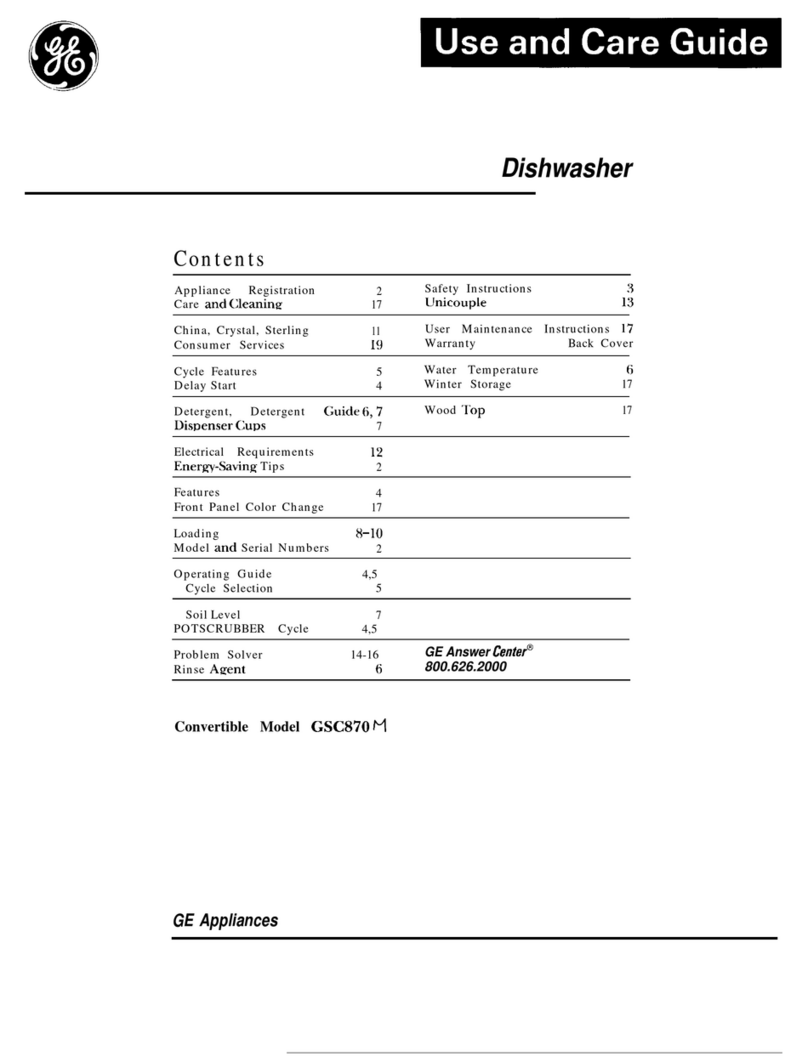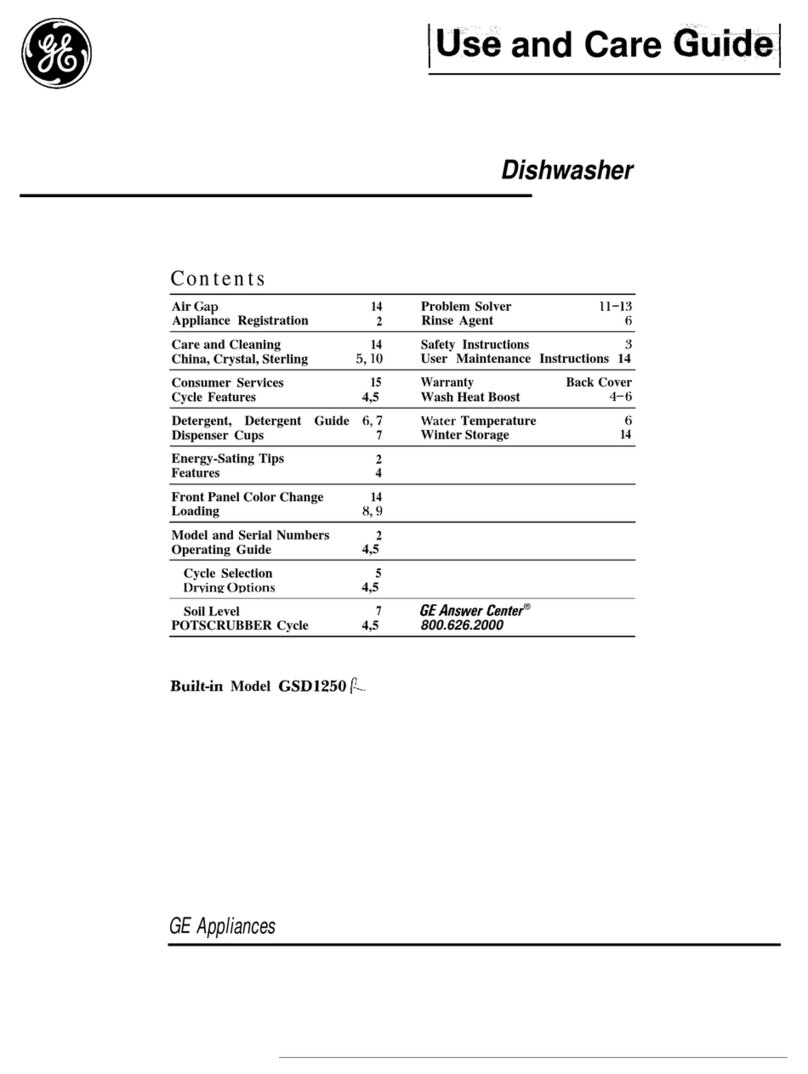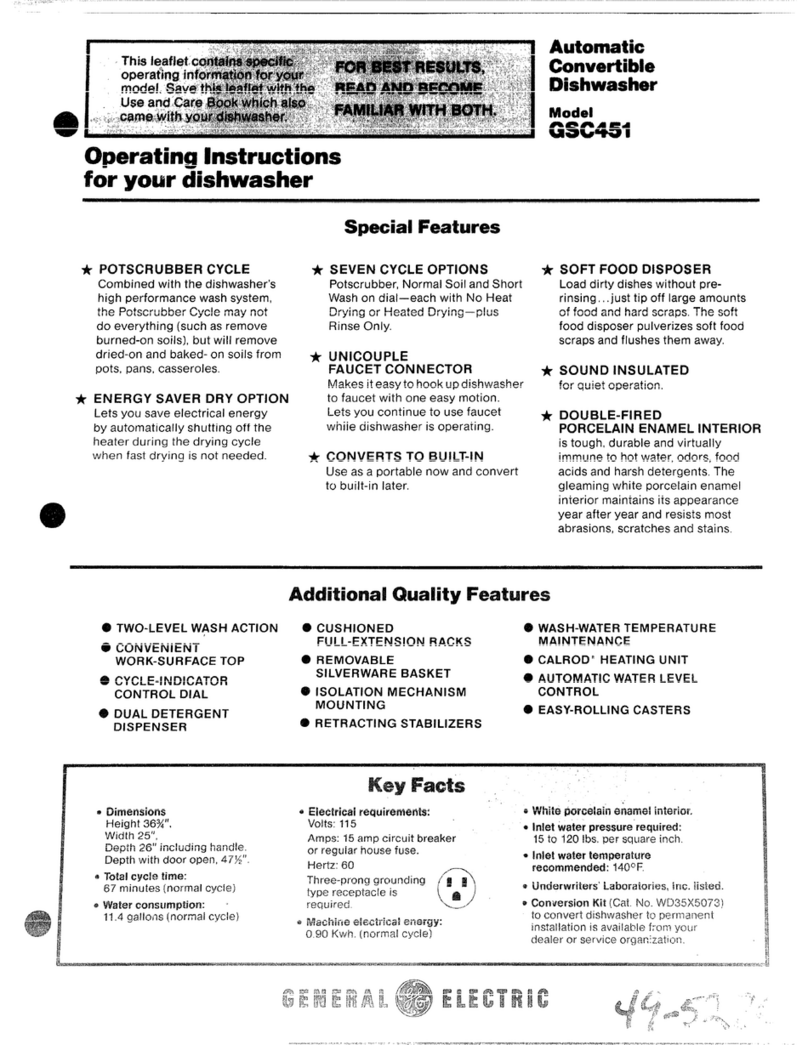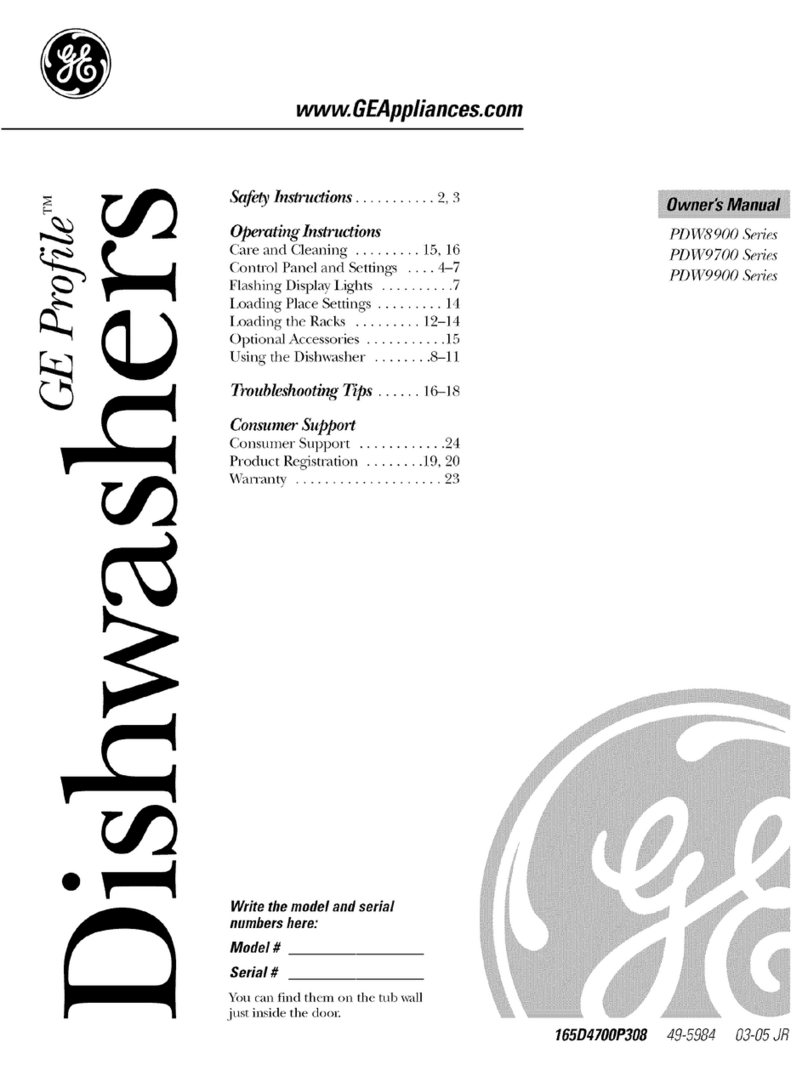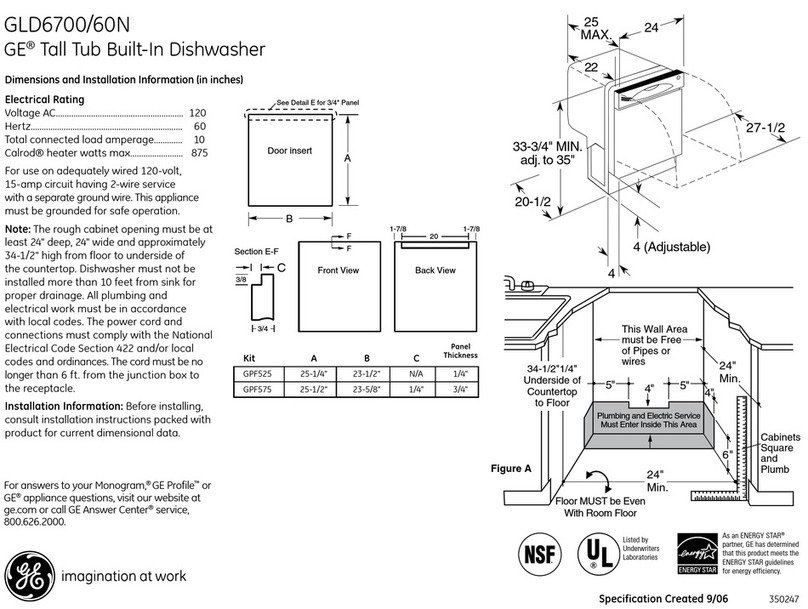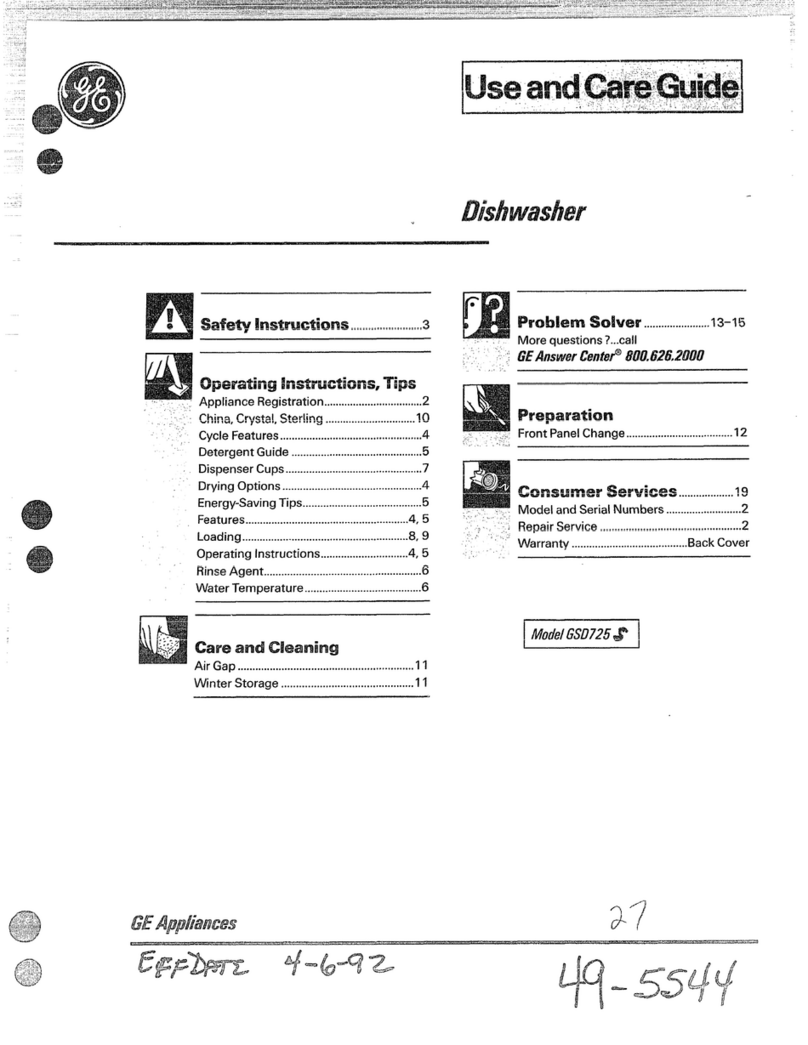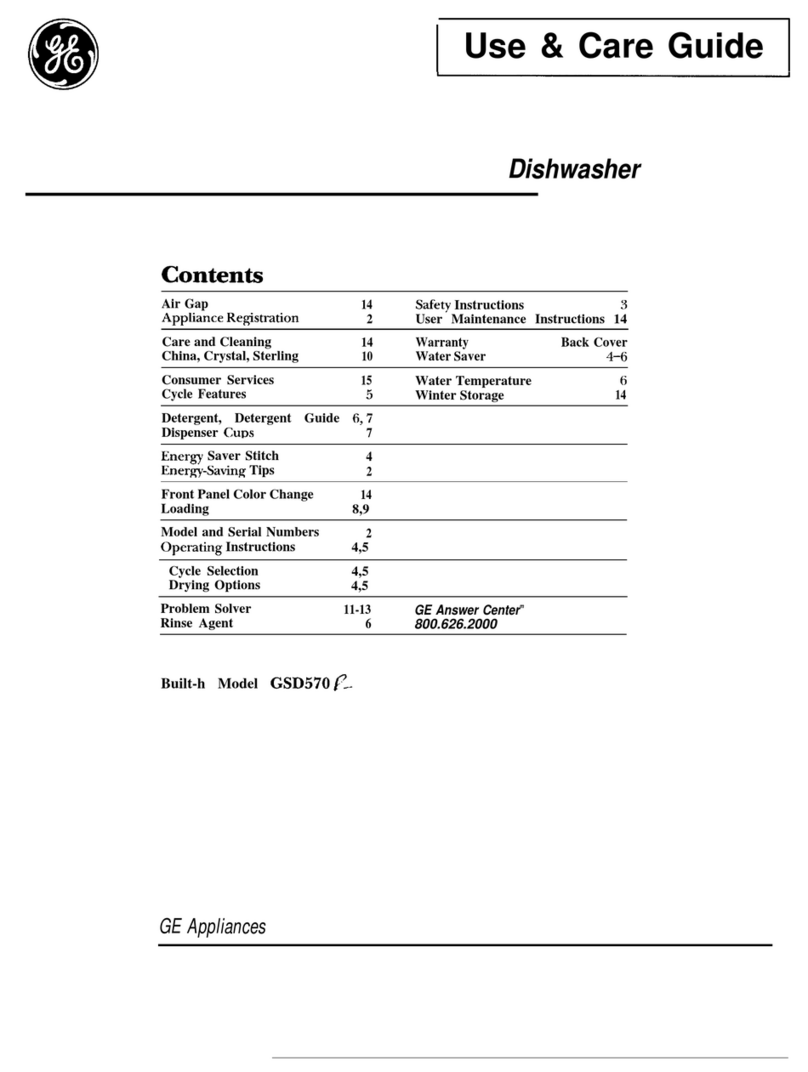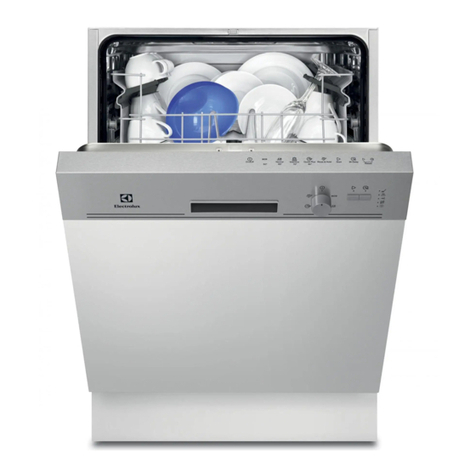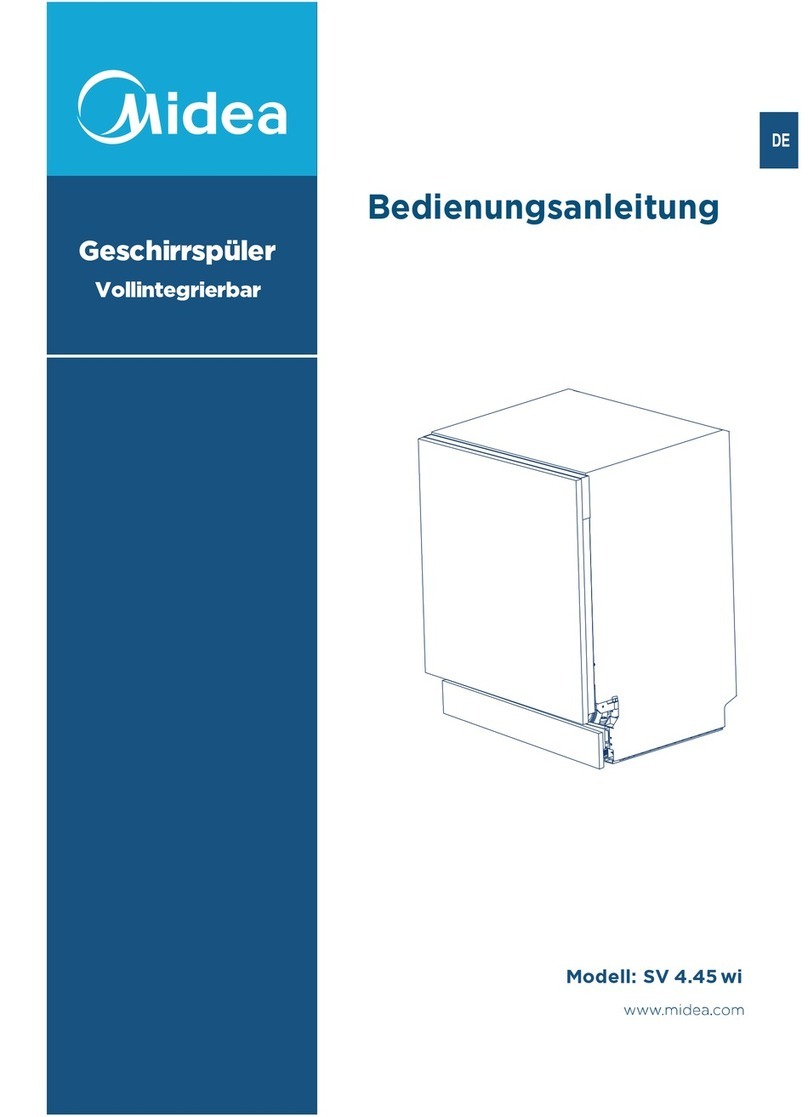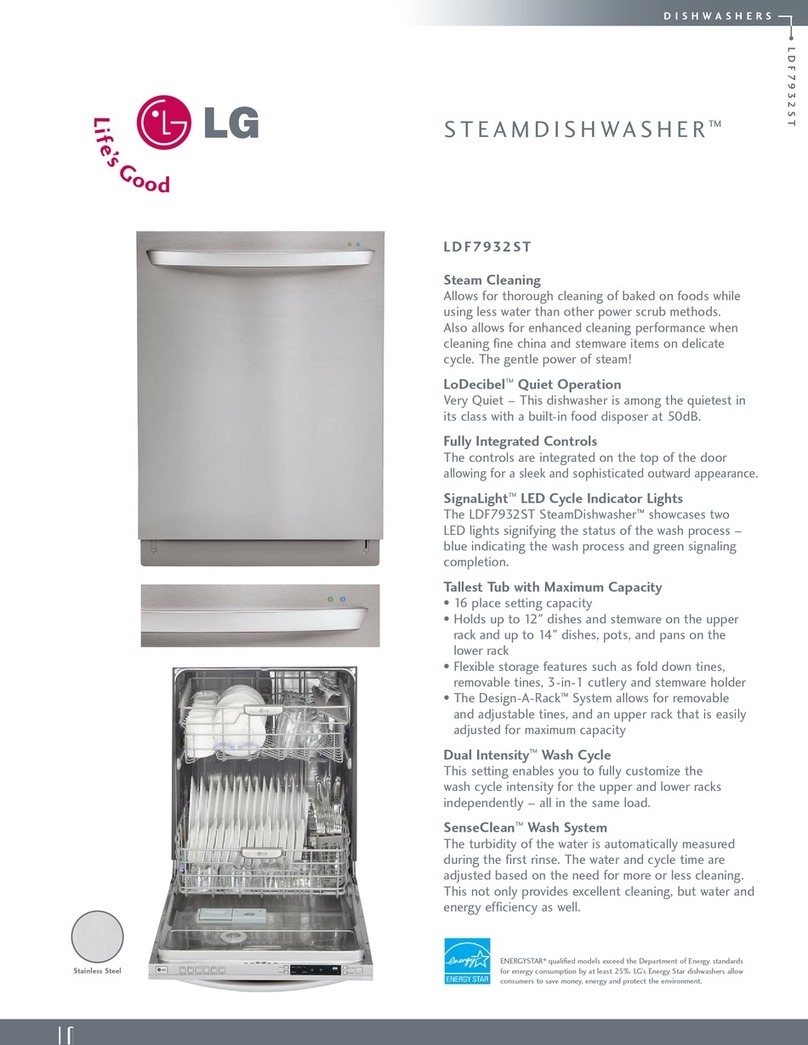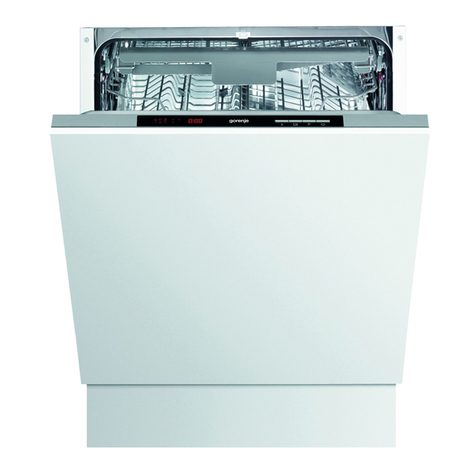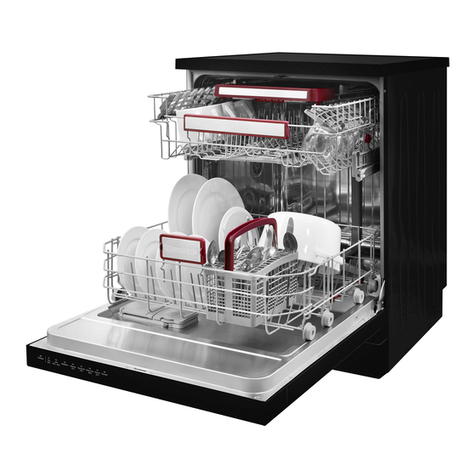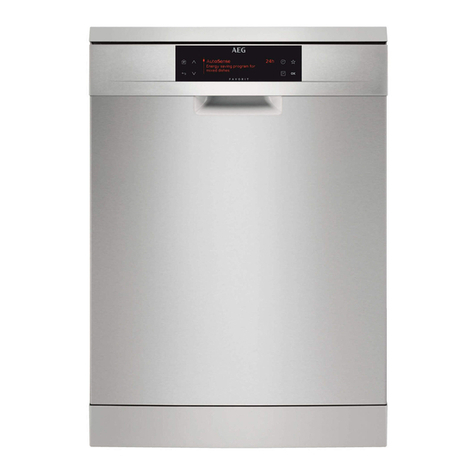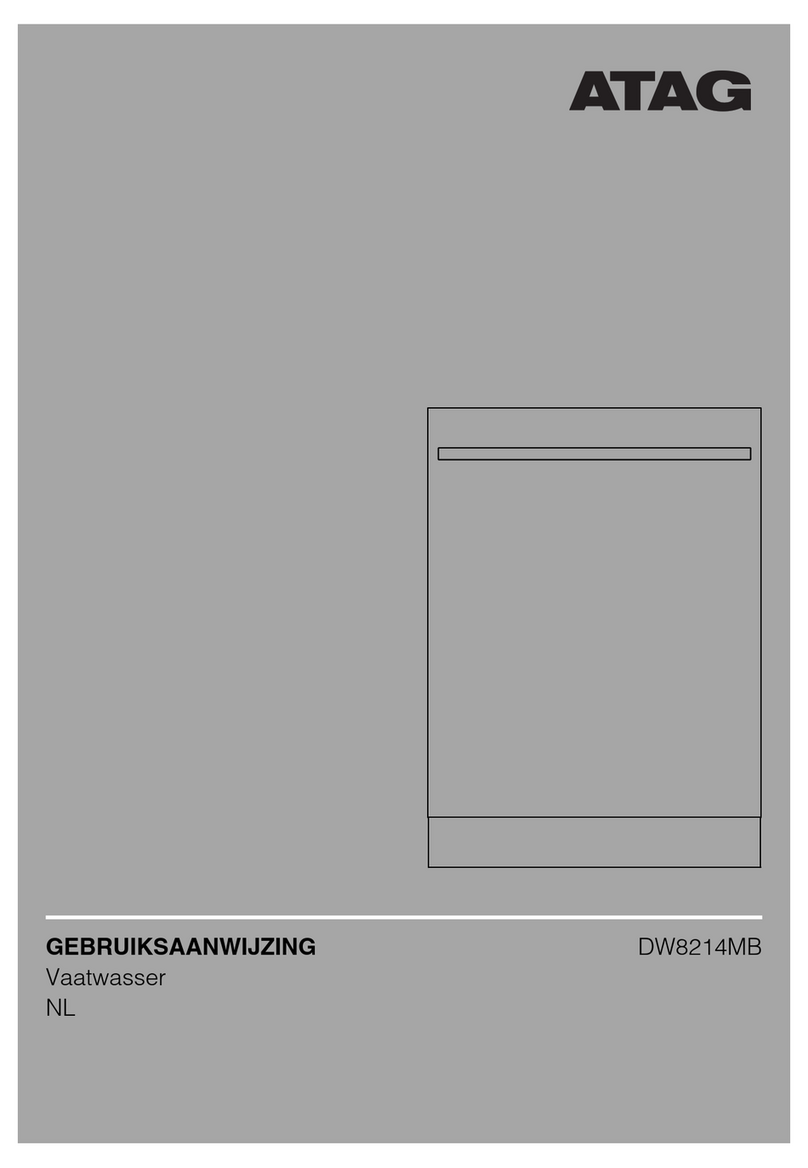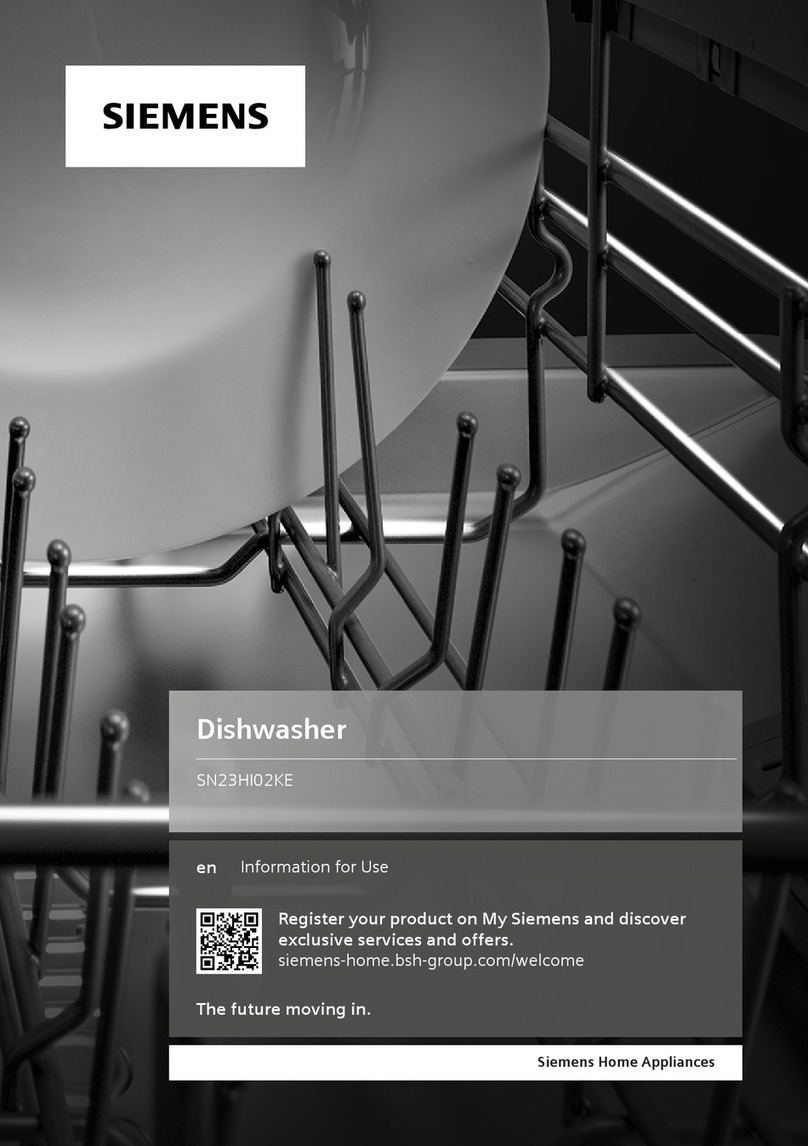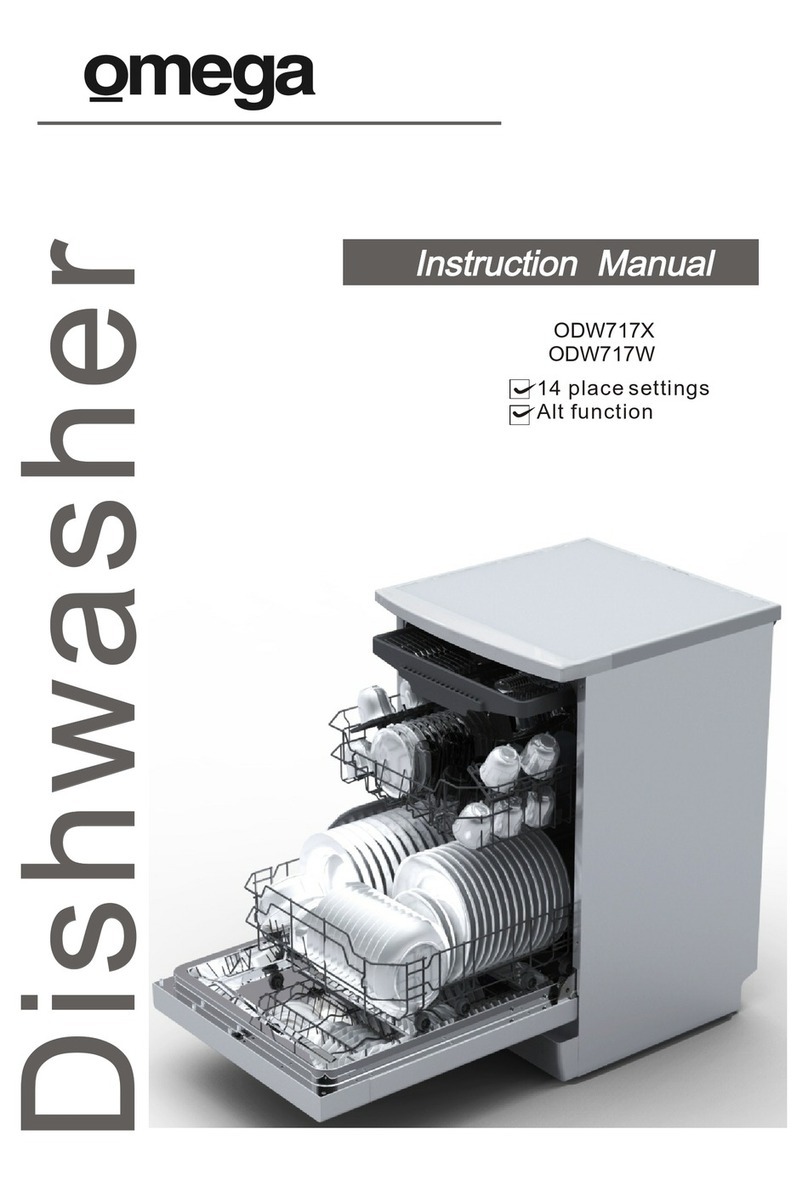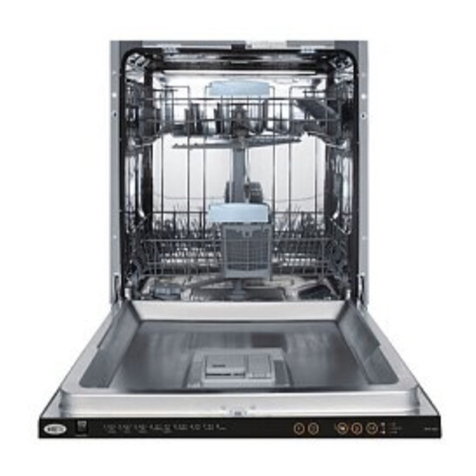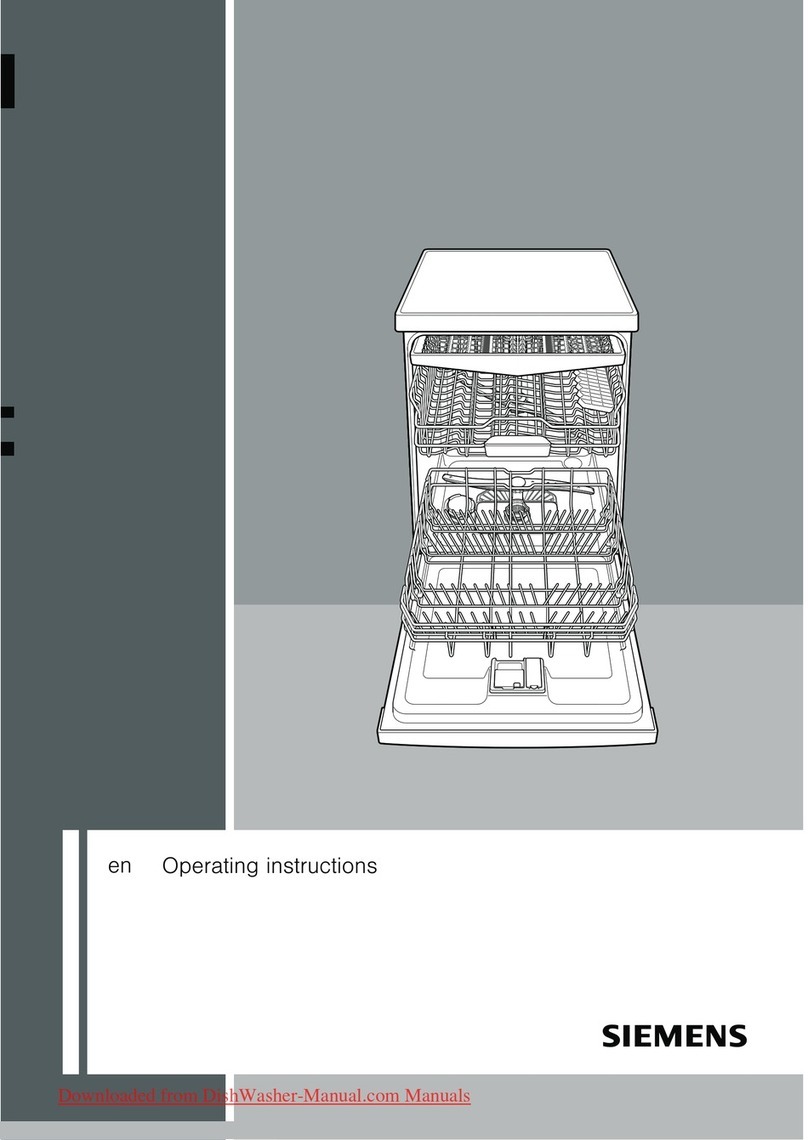GtmddishwashingSW4s
with I-Ion’ water
Togetdishescleananddryyouneed
hotwater.Tohelpyougetwaterof
thepropertemperature,your
dishwasherhasaWATERHEAT
feature.Whenselected(seepage4),
thiswaterheatingfeatureallowsyou
toturndownyourhouseholdwater
heaterandsaveenergyifyou’re
willingtoletthedishwasherrun a
li~e longerwhileitheatswater.For
goodwashinganddrying,the
enteringwatermustbebetween
120”Fand 140”F.Topreventdish
damage,inletwatershouldnot
exceed150°F.
How to test water temperature:
Check the water temperature inside
your dishwasher with acandy or
meat thermometer.
Let the dishwasher run through one
fill and pump out cycle, then let the
dishwasher fill with water the
second time, approximately 5
minutes after starting the machine.
When you hear the water stop
filling,-urdatchthe door and ;lowly
open it.
Measurethetemperatureof thewater
in the bottom of the tub this way:
Remove the silverware basket and
place acandy or meat thermometer
in the water towards the middle of
the tub. If the temperature is less
than 120”F,you will not get good
washing results. Raise your water
heater temperature, wait 30 minutes
and test again. I+igherwater
temperature is needed to dissolve
grease and activate powder
detergents. If the water temperature
is less than 140”F’,use the WATER
HEAT Option (see page 4).
6
He#pfulhints: If outside
temperaturesare unusuallylow,or
if yourwater travelsalong distance
from waterheater to dishwasher,
you may need to setyourwater
heater’sthermostatup. If you have
not usedhot water for some time,
the waterin the pipeswill be cold.
Turnon the hot water faucet at the
sink and allowit to run untilthe
water is hot. Then startthe
dishwasher.If you’verecently done
laundryor run hot water for
showers,give your water heater
time to recover beforeoperatingthe
dishwasher.
How to use aRinse Agent
Arinse agent makes water flow off
dishesquickerthan usual. This
lessens water spottingand makes
drying faster,too.
For best dishwashingperformance,
use of arinse agent such as JET-
DRY brand is recommended.
Rinse agents come in either liquid
or solidform. Yourdishwasher’s
dispenseruses the liquid form.
EIowto fi~lthe rinse agent
dispenser. Unscrew the cap. Add
the liquid rinse agent until itjust
reaches the bottom of the lip inside
the dispenser opening. Replace the
cap. The dispenser automatically
releases the rinse agent into the
final rinse water.
Myou accidentally spill: Wipe up
the rinse agent with adamp cloth.
Don’t leave the spillin the
dishwasher. It can keep your
detergent from working.
If you.can’t find any rinse agent,
write:
BENCKISER CONSUMER
PRODUCTS, INC.
(“JET DRY”)
411 W.Putnam Ave.
Greenwich, CT 06830
Yourdishwasher’s rinse agent
container holds 4X ounces. This
should last about 3months. Fill as
needed. Do not overfill.
How tod-momandwe
detergent e
First, use onlypowder or Iiquid
detergentsspecificallymadefor
use in dishwashers.Othertypes
wiUcause ovenmlsing.
Second,checkthephosphate
content.Phosphatehelpsprevent
hard-watermaterialsfromforming
spotsor filmun yourdishes.If your
wateris hard (7 grainsormore),
yourdetergenthasto workharder.
Detergentswithahigherphosphate
levelwillprobablyworkbetter,If
thephosphatecontentis low (8.7%
orless),you’llhaveto useextra
detergentwithhard water.
Yourwater department can tell
you how hard your water is. So
canyour countyextension agent
or your area’swater softener
company.Just call and ask them
how many “grains of hardness”
there are in your water.
How much detergent shodd you
use? That depends.Is your water
“hard” or “soft”? With hard water,
you need extra detergentto get
dishes clean. With soft water, you
need less detergent.
Toomuch detergentwith soft watel
notonly wastesmoney,it can be
harmful It can cause apermanent
cloudinessof glassware,called
“etching.” A~outside layerof glass
is etched away!Of course,thistakes
sometime. Butwhy take achance
when it’seasy to find out the
hardnessof yourwater,
Keep your detergent fresh and.
dry. Under the sink isn’t agood
place to store detergent. Too much
moisture. Don’t put powder
detergent into the dispenser until
you’re ready to wash dishes, either.
(It won’t be fresh OR dry.)
If your powder detergent gets old
or lumpy9throw it away.Itwon’t
wash well. Old detergentoften
won’tdissolve.
If you use aliquiddishwasher )
&j~.,.
detergent, these precautionsare not ~~~
necessary because liquid detergents “%””
don’t “lump” as they age or come L3:t
)
in contact with water. L
..

